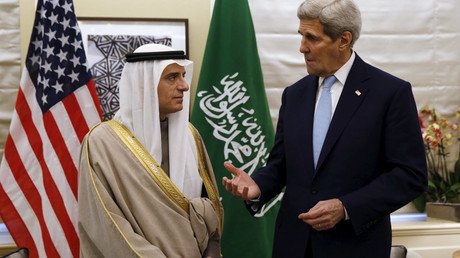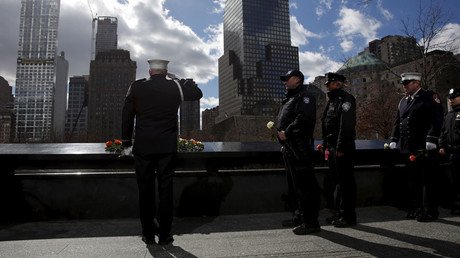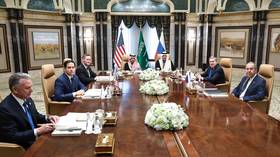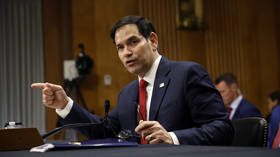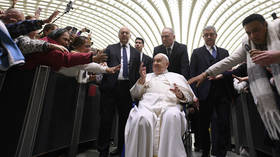Obama and GOP show ‘rare’ alliance over 9/11 bill that could harm US-Saudi ties
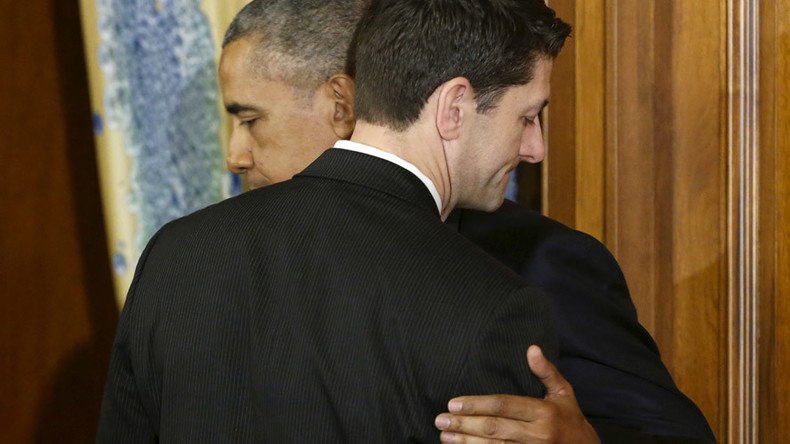
A bipartisan Senate bill that would allow the families of 9/11 victims to sue Saudi Arabia over suspected links to terrorists appears to have made strange bedfellows of President Obama and Senate Republicans, who have united against the legislation.
As the bill’s fate hangs in the balance, Capitol Hill lawmakers across party lines are divided on whether to advance the legislation. If passed, it could jeopardize relations between Washington and Riyadh, one of the US’s closest allies in the Middle East.
Passed in the Senate Judiciary Committee in January, the bipartisan “Justice Against Sponsors of Terrorism Act” would strip immunity from foreign governments in cases “arising from a terrorist attack that kills an American on American soil.”
READ MORE: ‘Americans need to tell their government to declassify 28 pages of 9/11 report’
Senators John Cornyn (R-Texas) and Chuck Schumer (D-New York) are the original co-sponsors. Senators Al Franken (D-Minnesota) and Ted Cruz (R-Texas) have also signed on in support.
However, it’s unclear when – if ever – it will come to a vote in the Senate or the House. It is currently being blocked by an anonymous senator, a move that would require a minimum of 60 senate votes to overcome.
Obama: ‘If we let Americans sue Saudis for 9/11, foreigners will begin suing US non-stop’ https://t.co/AKx8WnmD06pic.twitter.com/vqs1d8WQnR
— RT America (@RT_America) April 20, 2016
Senate Majority Leader Mitch McConnell (R-Kentucky) has said that no vote has been scheduled yet.
Keeping the legislation in limbo works to President Obama’s advantage, as he opposes the bill, like many of his unlikely allies – Republicans in both the House and Senate.
The White House has been lobbying against the proposal despite widespread support among the president’s fellow Democrats in the Senate.
By contrast, the division appears to have created rare unity between Obama and some of his staunchest opponents, Senator Lindsey Graham (R-South Carolina) and House Speaker Paul Ryan (R-Wisconsin), both of whom have publicly expressed skepticism over the bill.
“We are obviously gratified that there are other Republicans that have taken a close look at this legislation and recognized the serious unintended consequences that could result from its passage,” White House press secretary Josh Earnest said on Tuesday, admitting that alliances with GOP members are “rare.”
Senate Minority Leader Harry Reid (D-Nevada) told reporters that he supports the bill like “almost everyone in the [Democratic] caucus,” but that the “pushback is coming from the Republicans.”
“I’ve spoken with the White House… they don’t particularly like it, but that’s okay,” Reid added.
The White House maintains that it would be “unwise” for the Senate to pass the legislation, which “does open up the United States to a unique degree of risk, and putting our country, our taxpayers, our service members and our diplomats in legal jeopardy in that way is contrary to our interests.”
READ MORE: US Supreme Court rules Iran must pay almost $2bn to victims of 1983 terror attacks
On Tuesday, Senator Graham, who has put a hold on the bill, publicly expressed his doubts, saying that he wants to “make sure that anything we do doesn’t come to bite us.”
“Anything we do in this bill can be used against us later. So let's say there’s a situation where you’ve got an American in a consulate or an embassy that’s got their own grudge against a government,” he said. “We want to make sure that we’re not liable for that.”
He specifically cited US support for Kurdish YPG fighters in Syria as an example.
“We’re helping the YPG Kurds, right?” Graham said. “They’re the cousins of the PKK, which is a terrorist organization in the eyes of the US government and the Turkish government. Well, if they collaborate on an attack inside Turkey, I don’t want to be held liable.”
His position has been shared by Senator Jeff Sessions (R-Alabama), who also supports putting the legislation on ice to prevent it from coming to a vote.
“Everybody thinks this is the greatest bill since sliced bread,” Sessions said. “But you can have unintended consequences.”
Shortly before Earnest made his comments, Speaker Ryan also expressed uncertainty over the controversial law.
“I think we need to look at it,” Ryan said at a news conference, while declining to endorse the bill as of yet. “I think we need to review it to make sure we are not making mistakes with our allies and that we’re not catching people in this that shouldn’t be caught up in this.”
Senator John McCain (R-Arizona) has also expressed concern that passing the bill could strain relations with the Saudis, pointing out that they had pulled out of the fight against Islamic State (IS, formerly ISIS/ISIL) to go after Yemen.
“I’m concerned about the implications of taking this action on other activities, including the reaction of the Saudis,” he said. “This president has managed to poison relations between the United States and Saudi Arabia that is unprecedented because of his desire to have some kind of relationship with Iran.”
Many top Republicans have refused to either publically support or oppose the legislation, saying that they need more time to think on it.
Majority Leader McConnell has said he is “still looking at it.”
Originally announced by Schumer and Cornyn in September of 2015, the legislation has recently regained attention, especially in light of a New York Times report claiming that the Saudis have threatened to sell off American assets worth 12 figures if Congress passes the bill.
Possible links between the perpetrators of the 9/11 attack and Saudi Arabia may be hiding in 28 classified pages of a 2002 joint congressional inquiry into the matter. The completely blank 28 pages allegedly describe how Saudi Arabian nationals with links to the government financially assisted some or all of the 19 hijackers who flew airplanes into the World Trade Center’s twin towers and the Pentagon. Many people, including former Florida Senator Bob Graham, the co-author of the redacted pages, have been campaigning to have them declassified for years.
Speaking with Charlie Rose this week, President Obama hinted that the data could be declassified “very soon.”
When RT asked the State Department whether the Obama administration believes that current or former Saudi officials or members of Saudi Arabia’s royal family might have been in any way involved in the 9/11 attacks, spokesperson John Kirby refused to comment, readdressing the question to the internet and “the public record.”
“Look, I’m not going to re-litigate history here. The – you can go online and see the story of the attacks and how it happened and who was responsible, and I’m not going to re-litigate it here,” he said. “As it says in the report, there’s no indication that Saudi officials or the Saudi government was behind or supporting in any way those attacks,” he added.
